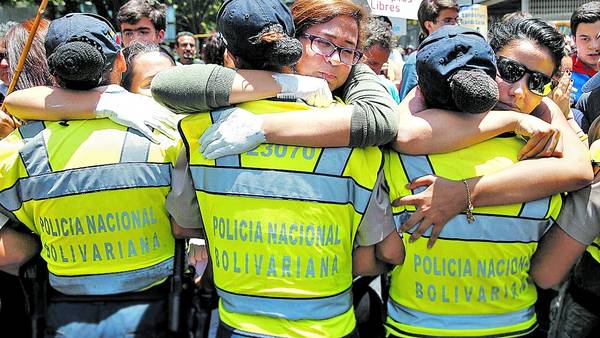Venezuela's common touch


 Some people believe that the crisis we are suffering is just a manifestation of something deeper, part of a set of unresolved cultural tensions. Key among these is the tension between modernity and rural life.
Some people believe that the crisis we are suffering is just a manifestation of something deeper, part of a set of unresolved cultural tensions. Key among these is the tension between modernity and rural life.
We just can’t shake it off. Rural life is still present in our cities, in our families, and in ourselves.
The late Venezuelan anthropologist Fernando Coronil argued that Venezuela bought the hardware of modernity, but not its software. Oil allowed us to buy shiny things – from highways to the Concorde. But, deep down, we remained peasants.
I think it was Ana Teresa Torres who said that a sign of our lack of modernity is the fact that we are so affectionate in public spaces. Venezuelans, she claims, can only establish meaningful connections in society, through outward displays of affection.
My generation is spread all over the world, looking for something it has lost. Looking for something not to be found anywhere. The framed picture of El Ávila is almost a cliché these days for caraqueño expats. It softens the burden of the distance. What is it that we lack when we aren’t home? Why do we feel miserable even when we have everything we aspired to have?
What gives us nostalgia?
I think this fragment written by Hector Torres hits the nail on the head.
“One morning on a random day. Is it even worth mentioning that the train was full? In the next station, a girl managed to hop on but found herself in the middle of the alley, with nothing to hold on to. The train started to move so abruptly that she lost her balance. As an unconscious act I extended my hand and she had no time to think whether or not to hold the lifesaver that had been thrown at her. We traveled holding hands and in silence, until the next station, where we exchanged a brief and shy “thank you/you’re welcome”, and she took advantage of the empty spaces made by those leaving the train and found a place to hold on to for the rest of her journey.”
[…]
A dear friend of mine has lived in London for many years. He came to Venezuela with his family during the holidays and, upon his return, mentioned one of his children is having re-adaptation issues. Why? The boy missed the warm human contact he received during his brief stay, the hug that was both frequent and lacking specific reasons. This is no isolated report.
Testimonies from New York or Berlin point to the same thing: “everything works well here -we’ve all heard say-, but you must adapt to certain rules: don’t stare for more than five seconds, don’t even think of messing an unknown kid’s hair when walks by, don’t try to hug your work colleagues when saying hello, be careful about the other’s personal space, don’t pad your boss or professor on the shoulder, don’t even think of using an endearing ‘negro’ in public…”
It may seem excessive, but when we distance ourselves from these affective expressions, forced by the restrictions imposed on physical contact in other cultures, we start to feel a chill on our flank that ends up invading our mood. To not touch, for people that see the world through the “I feel” before the “I think”, ends up being a hurdle that is hard to overcome. It is almost a cruelty.
As or more so than the lack of Harina Pan.
[…]
As ours as taking the bus anywhere on the road o returning a food container with a culinary present, some of those things that are there, like them or not, and we can’t help ourselves. It is one of the traits that defines us. It is in that a way, perhaps primitive but beautiful in its emotionality, to tell the other that is our (adjacent) fellow: by touching”
This has to be the problem of my generation. This must be what gives meaning to it. How can we demonstrate Ana Teresa Torres wrong and create a Venezuelan Modernity, one that allows for affection in all spaces as an expression of a modern society?
On New Year’s Eve in Caracas, I was joined by a very insightful person from the US. She mentioned that what she enjoyed the most from the celebration was the affection, the smiles, the kisses, the hugs, all coming from perfect strangers.
That is something worth fighting for.
PS. The quote comes from the book “Objetos no declarados. 1001 maneras de ser venezolano mientras el barco se hunde” by Hector Torres. I strongly suggest you get it. The translation is mine.
Caracas Chronicles is 100% reader-supported.
We’ve been able to hang on for 22 years in one of the craziest media landscapes in the world. We’ve seen different media outlets in Venezuela (and abroad) closing shop, something we’re looking to avoid at all costs. Your collaboration goes a long way in helping us weather the storm.
Donate




